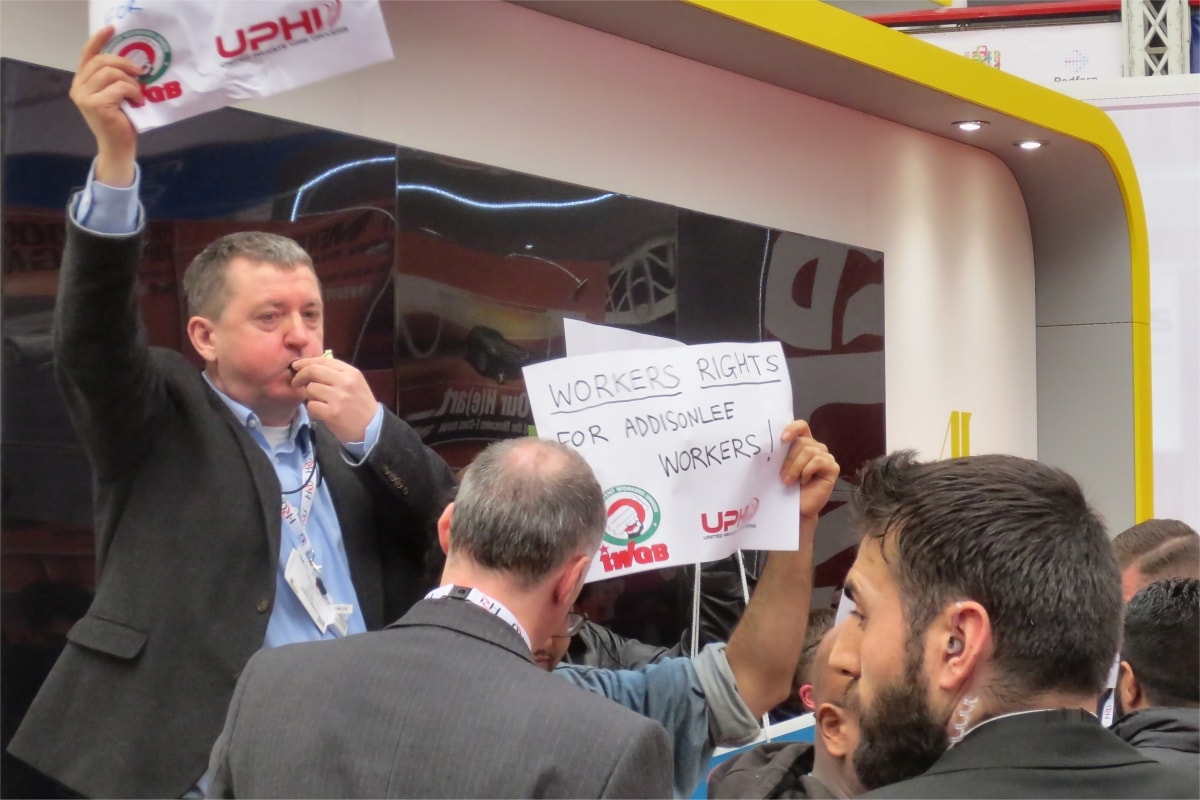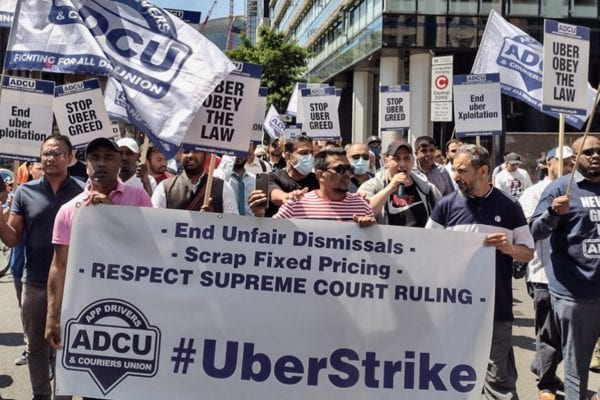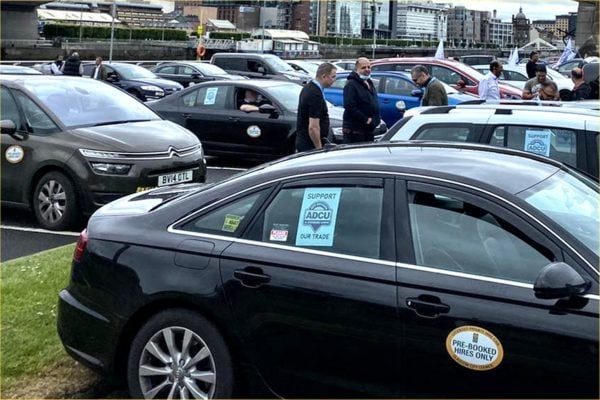ADCU in turmoil as Farrar resigns after independent report cites “toxic” culture

The trade union that won landmark employment rulings against Uber has been plunged into chaos after an internal report highlighted multiple cases of abusive and racist behaviour within the organisation.
The report has resulted in the resignation of App Drivers and Couriers Union founder James Farrar, and has left the union leaderless as co-founder Yaseen Aslam resigned in July, following a power struggle between the two men.
ACDU had commissioned the report itself, calling in barrister Karon Monaghan to look closely at the union’s operations. But the report made uncomfortable reading for the ACDU leadership, as it found there was a “culture of abuse and toxicity” within the organisation, including incidents of racial abuse and Islamophobia and mistreatment of staff.
Making 26 recommendations to change the ADCU’s culture, Monaghan wrote: “Staff are treated poorly and undervalued. There is high turnover of staff and high levels of absence due to sickness.”
The toxic culture largely stemmed from a power struggle between Farrar and Aslam, which saw many abusive and threatening messages sent to both men and other ACDU executives by the various factions within the union.
Monaghan wrote: “The friction between them has not led them to stand back from ADCU and hand over to others but rather to engage in a toxic power struggle. That power struggle puts in peril the existence of ADCU.”
Ironically, ACDU was only last month accusing West Northamptonshire council of using “racist tropes” while defining licensing policy. However, Monaghan concluded: “I note that although ending discrimination and seeking equality is one of the objectives of ADCU… ADCU does not appear to have
undertaken many activities directed at these objectives.”
She also said there were instances of sexism within the organisation: “…there is a wider culture of aggression within ADCU which impacts no doubt on many members but particularly women. This culture needs to be addressed if ADCU is truly to be a welcoming space for all women who are entitled to engage in trade union activities.”
In his resignation letter, James Farrar did not mention the Monaghan report, but blamed the ACDU’s national executive committee for the organisation’s failings. He wrote: “The NEC has not succeeded in delivering the necessary changes quickly and effectively. I take responsibility for my part of that failure and so I now tender my resignation. It is time to make way for new leaders, fresh ideas and different ways of doing things.”
Farrar had effectively made his position as general secretary untenable by taking on a full-time position at another organisation called the Worker Info Exchange. However, the union’s rule book states that the general secretary “is expected to devote themselves full-time to this important role”.
ADCU rules stipulated that all members had to be drivers, but neither Aslam nor Farrar had worked as drivers since 2016, and “neither of them intended to return to that work,” the report concluded.
In conclusion, Monaghan was highly critical of both Aslam and Farrar. “They are strongly committed to ADCU, and they should be given credit for that. However, I find that Yaseem Aslam and James Farrar did not, and do not, have the time or skills to effectively run a trade union without the support of others. They did not recognise this at the outset, and I am not satisfied that they do so even now.”
The ADCU currently represents more than 7,500 gig economy workers across the country, mainly private hire drivers working for ride-hailing companies such as Uber and Bolt, as well as delivery drivers. In February 2021, it won a landmark law case against Uber in the Supreme Court, forcing Uber to declare its drivers were “workers” entitled to pensions, holiday pay and sick pay.
Farrar is distancing himself from the ADCU. In his resignation letter, he wrote: “I am choosing to invest all my time in the continued battle for worker digital rights at Worker Info Exchange. As platforms such as Uber and Bolt mature in their markets, they are increasingly turning to more predatory use of artificial intelligence and machine learning to exploit workers more brutally than ever before. I believe, given my skills and experience, I can better serve workers and the movement by dedicating all my time exclusively to this work.”





